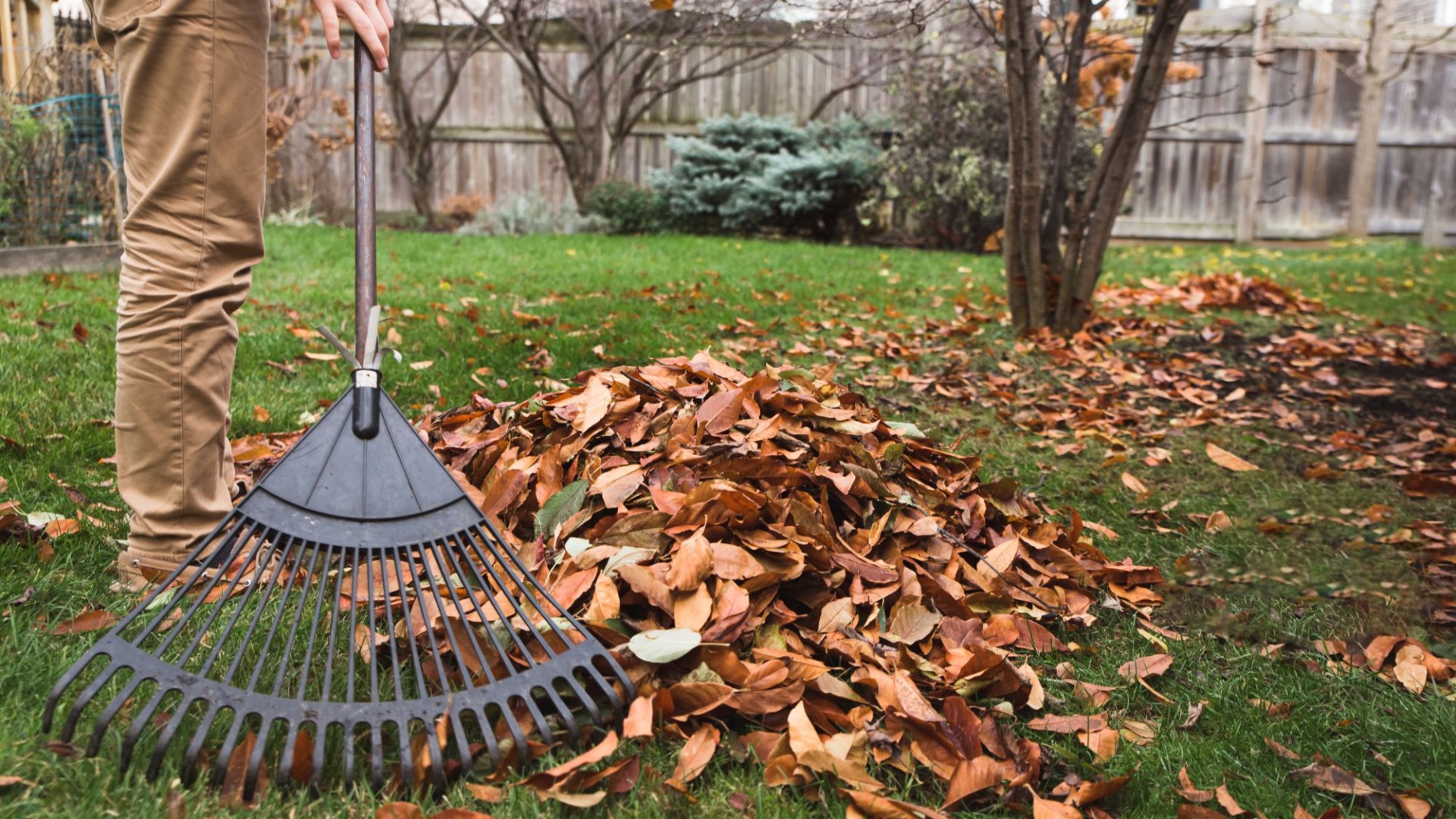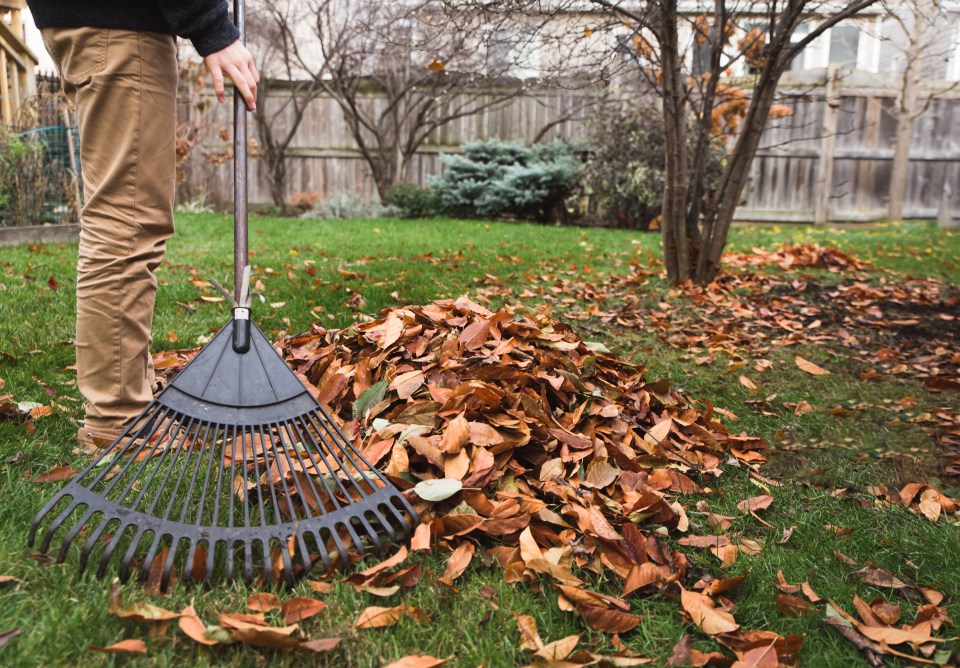Gardener reveals task to do in autumn to prevent grass from rotting




As winter approaches, the leaves are falling and the weather isn’t looking great.
This means that mowing the lawn can be a messy job, stirring up all the mud.
Fabulous spoke exclusively to gardener Jack Stooks about the crucial job homeowners need to do to prevent their grass from rotting.
As well as the other essential garden jobs that need to be tackled in the autumn.
How often should someone mow their lawn this month?
Jack said: “If you have some nice clear days this month you should aim to mow it once or twice.
“The grass will not grow as much in this weather, now the grass is a lot wetter and has more leaves.
“It’s good to mow your lawn this month to keep it a good length. It also helps to get the leaves out of the way.
“It’s also a good time to raise the clippings a little so your grass is better protected in the colder months.”
How do leaves on a lawn cause the grass to rot?
“When you see leaves on the grass, they pile up pretty quickly,” he continued.
“As we get less light during the day, this affects the grass underneath as it doesn’t get as much sunlight as it needs for healthy growth.
“The extra moisture in the grass and less sunlight lead to rotting.
“To prevent this, rake the leaves so that the grass remains bright. You can also purchase a leaf blower for this.”
Once the leaves are raked, what can a gardener do with them?
“If you have a barrel bag, use it to hold all the leaves and keep piling them in there,” Jack recommended. “The longer you keep the leaves, the better they are for your compost.
“If you have had the leaves for two years, this would be good to add to your compost pile. You can then use this compost in your garden borders when you are ready to plant your new plants.
“If you don’t have a barrel bag, you can still save your leaves so you can use them later.
“Similar to a compost bay, you can start a leaf bay. Instead of putting the leaves on the compost, you can store them separately so you get a nice leaf mold that you can use in a few years.”
Do you recommend leaving a pile outside for wildlife in the winter?
“You can leave the pile in your yard if you want, but you might find a snake’s nest there,” Jack suggested. ‘Snakes will use the pile for warmth and somewhere to lay their eggs.
“This can be a problem if you’re not the biggest fan of snakes. They also like compost piles, but that depends on the conditions outside.
“I would recommend placing your leaves in a specific spot as it is good practice to keep an eye on the space in your garden. Depending on the amount of leaves you have in your garden, you can put one, two or even save three stacks and rotate them for further use.”
Other garden jobs you can do this fall
Cleaning plant pots
“If you have a large sink or bucket, fill it with warm water and fairy liquid,” Jack said. ‘The dishwashing liquid you use in the kitchen for your pots and pans is sufficient.
“Once they are all clean, you can put them back in your greenhouse, garage or shed.
“It’s best to store them upside down and place them on top of each other. Make sure they are dry before you do this. Don’t ram them all together when they are still a little wet as they may get stuck together.
It’s a good job to do this before next year, before spring, so they’re ready to go.”
In conversation with Fabulous on behalf of FruitySlots.com : “I would also recommend cleaning your tools so they don’t rust in the winter.
“You should also bring your garden furniture inside. If you have painted furniture, it is good to let it dry completely, sand off any bits and repaint it so it is ready for next year.
“You can also use this time to sort your hanging baskets. Take this time to empty them and clean them when you can.”
Clean up the garden and throw away old plants
“If you’re clearing out old plants, you can put all your herbaceous plants in the compost,” he said. “It is good to leave them in the compost over winter so that they can eventually be used for your borders in the spring.
“You will want to continue turning your compost over time so that it is ready to use next year. If you do not mix and turn your compost, it will not rot as quickly. They may not rot if left during the period is too wet.
“If you have a chipper, you can shred twigs and sticks before adding them to the compost, which will quickly compact and rot it.
“Alternatively, you can take your old garden waste or plants to a recycling centre. If one of your plants has a specific disease, you can also burn it by burning it.”
Garden work in October

Veronica Lorraine, garden editor for The Sun, has shared the jobs you need to tackle this October.
“It’s a good time to prune deciduous hedges – such as boxwood, yew, hawthorn, hornbeam and beech – and hedge trimmers are a great upper body workout!
Make leaf mold – collect all fallen leaves and fill garbage bags or plastic carrier bags. Seal the top, poke a few small holes in the bag and store for a year or more. Free compost!
You’re unlikely to get any more red tomatoes, so harvest one more time and throw the plants into the compost. See if you can ripen the green ones by putting a drawer in them (some say with a banana). Save the seeds from a few too – and plant them again next year if they have gone well.
Finish bringing in your spring bulbs. Ideally you would have planted daffodils and alliums, but tulips are better in the open ground when the soil temperature becomes a bit colder.
It is good to leave some plant waste in the ground; this adds nutrients as it rots, providing shelter and food for insects. But remove the dingy brown bits that are collapsing all over the lawn/winter structure.
Mulch – it not only suppresses weeds, but also keeps the soil warm, improves water retention and adds a little winter comfort to your outdoor space.
October is a good month for carrots, peas, asparagus, broad beans and rhubarb.”






